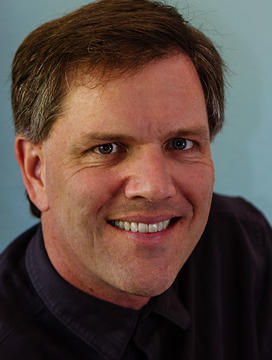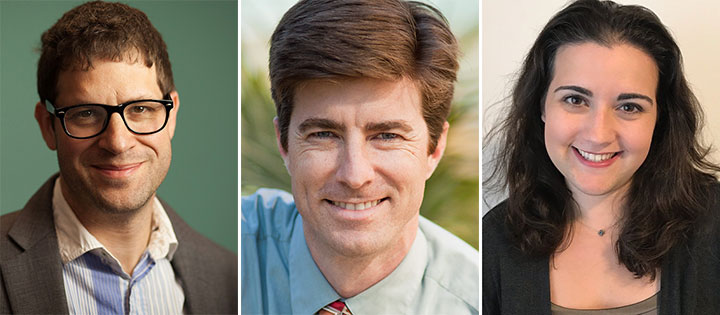Alumni at Kairos Aerospace Use New Tools To Curb Methane Leaks
Natural gas has been described by its environmentally conscious advocates as a “bridge fuel” — a resource that could span the transition from coal and oil to a future of renewable energy sources such as wind and solar. But the extraction of natural gas is accompanied by a downside: Methane that leaks into the air contributes disproportionately to global warming, compared with carbon dioxide emissions. And researchers have suspected that a relatively small percentage of leaks are responsible for most of the gas that is being released.

“It turns out that this big-leak theory is correct,” Jones says. “There are a small number [of methane leaks] that are responsible for most of the gas. And now … we can help oil companies find those quickly and put a stop to them.”
As of early October, Kairos had surveyed about 85 percent of oil and gas facilities in the New Mexico portion of the Permian Basin — some 26,000 wells and 5,000 miles of gathering lines — by flying back and forth in parallel rows, like a lawn mower. Jones estimates that this year, 1.5 billion cubic feet of methane have been kept out of the atmosphere by operators repairing leaks that were detected by Kairos.
Jones, a physics major at Princeton, spend more than a decade as a scientist at Lockheed Martin before he and his co-founder, fellow Lockheed researcher Steve Deiker, decided to start their own company. They chose the name Kairos, an Ancient Greek word for a critical moment, with three ideas in mind: the need to address climate change; the business opportunity of creating a different kind of aerospace company; and the personal decision to try something new.
As the Kairos team has grown, it has added three other alumni: Matt Gordon ’98, a physics Ph.D. who serves as the company’s principal software engineer; Ken Branson ’94, an electrical engineering grad who has worked on algorithm development, project management, and marketing; and Katrina Bushko ’14, a recent hire working in customer engagement.
Gordon went to work at Kairos because he saw its potential to have “market-based social impact,” he says. “It’s very important to me that we develop solutions to our societal problems that are scalable, and the only way to make them scalable is to make people invest in them because they need them.”
Jones adds that the work Kairos does is a “win-win,” environmentally and economically.
“Most of the things that we have to do in order to make life sustainable on the planet involve one kind of tradeoff or another,” Jones says. “This is a case where we’re really lucky — there’s no tradeoff. We keep more gas in the pipelines that we can use productively, and it’s better for the environment.”










No responses yet